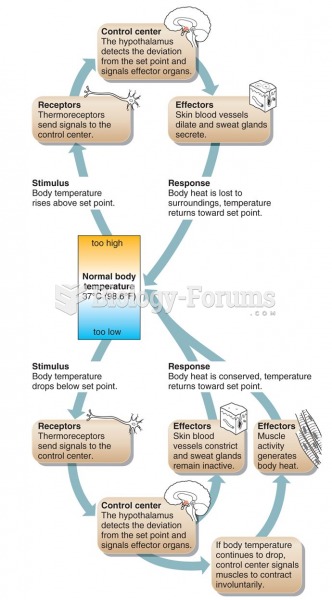|
|
|
More than 150,000 Americans killed by cardiovascular disease are younger than the age of 65 years.
Medication errors are more common among seriously ill patients than with those with minor conditions.
Side effects from substance abuse include nausea, dehydration, reduced productivitiy, and dependence. Though these effects usually worsen over time, the constant need for the substance often overcomes rational thinking.
Illness; diuretics; laxative abuse; hot weather; exercise; sweating; caffeine; alcoholic beverages; starvation diets; inadequate carbohydrate consumption; and diets high in protein, salt, or fiber can cause people to become dehydrated.
For pediatric patients, intravenous fluids are the most commonly cited products involved in medication errors that are reported to the USP.







